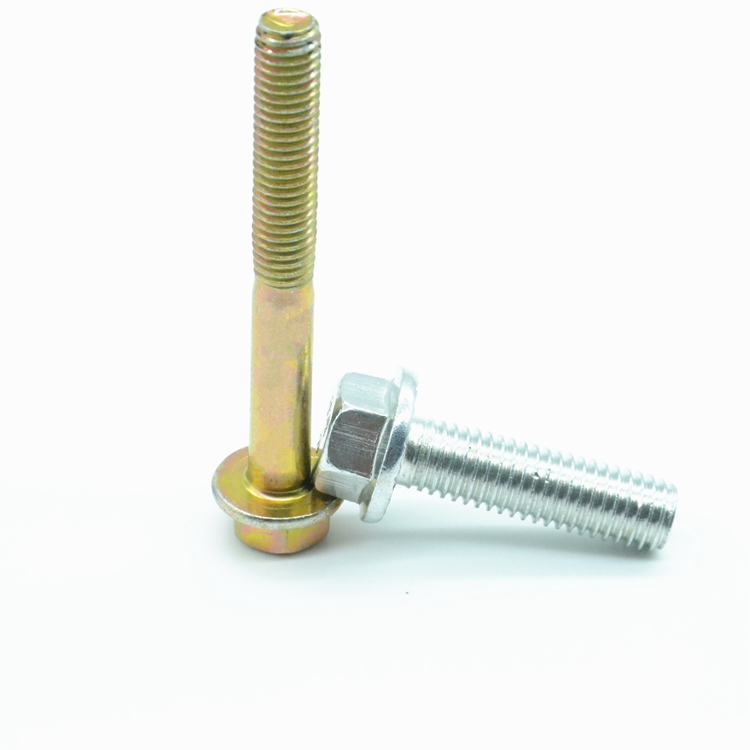Understanding the Properties and Applications of A193 Stud Bolts in Industrial Settings
Aug . 01, 2024 04:51 Back to list
Understanding the Properties and Applications of A193 Stud Bolts in Industrial Settings
Understanding Stud Bolt A193 A Critical Component in Engineering
In the realm of industrial and structural engineering, reliability and strength are paramount. Among the various fasteners used, stud bolts play a crucial role, particularly those conforming to the ASTM A193 specification. This specification outlines the requirements for alloy and stainless steel bolting materials specifically intended for high-temperature or high-pressure service. Understanding the characteristics and applications of A193 stud bolts is essential for engineers and procurement specialists working in sectors such as oil and gas, power generation, and heavy machinery.
What Are Stud Bolts?
A stud bolt is a type of fastener that features a threaded rod with a nut on each end. Unlike conventional bolts, which have a specific head configuration, stud bolts lack a head and are typically secured by nuts. This design allows for greater versatility in applications where space is limited or where a high-strength connection is required. Stud bolts can be used in a variety of assemblies, including flanged joints, pressure vessels, and machinery mounts.
ASTM A193 Specification
The ASTM A193 specification categorizes stud bolts into several grades based on their chemical composition and mechanical properties. The most commonly referenced grades include B7, B16, and B8.
- Grade B7 This grade is made from alloy steel and is often used in high-pressure applications due to its excellent tensile strength at elevated temperatures. - Grade B16 Similar to B7, grade B16 is also an alloy steel but is designed for use in higher temperature conditions, making it suitable for applications in the petrochemical industry. - Grade B8 This grade is made from stainless steel, offering corrosion resistance and making it ideal for marine and corrosive environments.
The material composition and mechanical properties defined by ASTM A193 ensure that these stud bolts can withstand the rigorous demands of industrial applications.
stud bolt a193

Applications of A193 Stud Bolts
Stud bolts manufactured to the ASTM A193 standard are indispensable in environments where safety and durability are critical. For example, they are widely used in
1. Oil and Gas Industry High-pressure pipelines and refineries rely heavily on A193 stud bolts to maintain integrity and safety during operations involving toxic or flammable substances. 2. Power Plants Turbines and reactors often require high-strength connections that can withstand extreme temperatures and pressures, making A193 stud bolts a preferred choice.
3. Chemicals and Petrochemicals In chemical processing plants, stud bolts prevent leaks and maintain system integrity, especially in applications dealing with corrosive materials.
4. Heavy Machinery Construction and earthmoving equipment utilize stud bolts to ensure that critical components remain securely fastened under continuous stress and vibration.
Conclusion
In summary, ASTM A193 stud bolts are essential components in various high-demand industries. Their design and material specifications ensure that they can handle extreme conditions while providing a secure connection. As engineering needs evolve with new technologies and practices, the reliance on standard-compliant fasteners like A193 stud bolts will continue to grow. Understanding their properties and applications is crucial for anyone involved in the selection and implementation of fastening solutions in industrial settings. Embracing quality and compliance with standards will foster safer and more efficient engineering practices in the years to come.
Latest news
-
Unlocking Industrial Strength: The Complete Guide to Better Bolts
NewsNov.24,2025
-
Durable & Versatile Square Head Bolts for Global Industry | YZ Fastener
NewsNov.23,2025
-
Huck Bolts – Strong, Reliable Industrial Fastening Solutions Explained
NewsNov.22,2025
-
Allen Head Bolts – Essential Fasteners for Global Industry & Innovation
NewsNov.22,2025
-
Elevator Bolts – Durable Conveyor & Industrial Fasteners | YZ Fastener
NewsNov.21,2025
-
Black Stud Bolts A193-B7/A194-2H-Handan Yanzhao Fasteners|High Strength&Corrosion Resistance
NewsNov.21,2025
